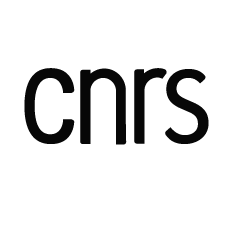Team AVA
Coordinators : Solène Kalénine & Clémence Roger
Research conducted in the ADAPT team focuses on the mechanisms involved in perception, action and their interrelations, postural control, behavioral regulation, and decision-making. This work is grounded in a dynamic and adaptive approach to perception–action relationships, in which these relationships play a functional role in the emergence and maintenance of adaptive behaviors. Our research draws on theories of learning, embodied cognition, motor control, and cognitive control, as well as decision-making models. The research themes address both cognitive and neural functioning. The work has applied perspectives related to the development of environments that foster motivation and performance, the promotion of pro-environmental behaviors, and management of neuropsychological disorders.
Methods:
response time and choice measures, eye tracking, EEG, EMG, EDA, motion capture, static and dynamic virtual reality, force platforms, computational modeling
Populations:
healthy adults, patients with neurological or psychopathological disorders, typically developing children and children with developmental disorders, older adults
MEMBERS TEAM ADAPT
Coordinators : Solène Kalénine (CR, CNRS) & & Clémence Roger (MCF, ULille)
Researchers : Jérôme Alessandri (MCF, ULille), Cédrick Bonnet (CR, CNRS), Murielle Garcin (Pr, ULille), Dorian Goueytes (MCF, ULille), Jeremie Jozefowiez (Pr, ULille), Solène Kalénine (CR, CNRS), Laurent Madelain (Pr, ULille), Yannick Miossec (MCF, ULille), Arthur Prevel (MCF, ULille), Vinca Rivière (Pr, ULille), Clémence Roger (MCF, ULille), Yannick Wamain (MCF, ULille)
PhD Students : Paul Butin, Marine Coeugnet, Adrien Lorant, Marie Mathé, Catherine Merck, Raphaelle Radenne, Nicolas Slaski, Esteffe Violet
MAST: Joëlle Nuchadee
Post-doctorants: Layan Fessler, Rémi Lafitte, Vasiliki Myrodia
IGE/ IGR: Maxime Martel, Zeynep Yenigun
Axis
Axis 1 : Relations between perception, action and representations.
This research axis aims to understand the influence of high-level representations, such as semantic knowledge, action representations or affective states, on the fundamental processes of perception and action. It focuses in particular on the interactions between these representations and the mechanisms involved in object detection and identification, as well as in associative visual learning processes.
Axis 2 : Motivation and performance
This research axis aims to identify the conditions that maximize performance in perceptual, cognitive, and motor tasks. It focuses in particular on the influence of posture and seated versus standing positions, as well as on the multisensory characteristics of environments that promote effort, performance, and behavioral change.
Axis 3 : Behavior regulation and decision
This research axis focuses on the study of learning and cognitive control mechanisms and their influence on individual choices. Increasing attention is being devoted to decision-making processes and to the evaluation of decisions (metacognition). The implications of these mechanisms for the emergence and maintenance of pro-environmental behaviors are also explored.
